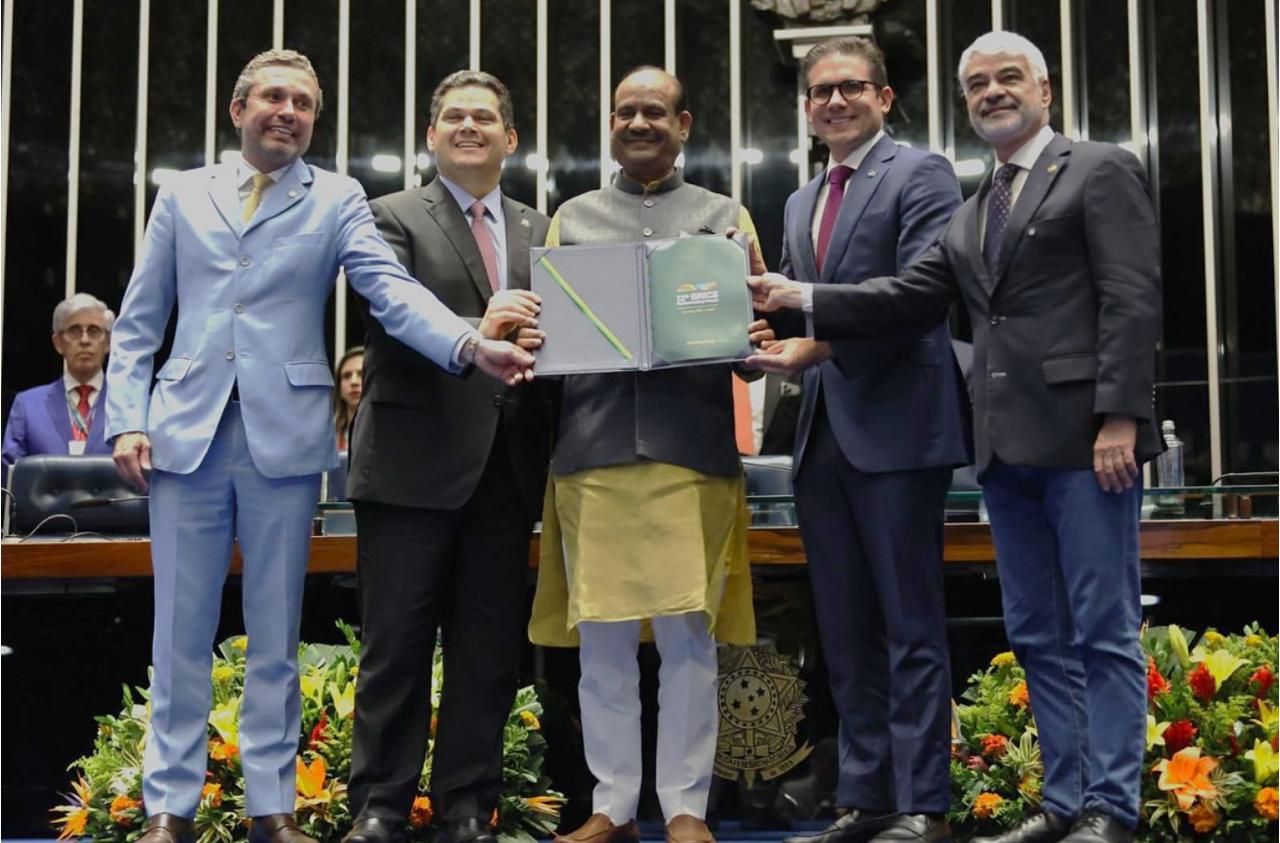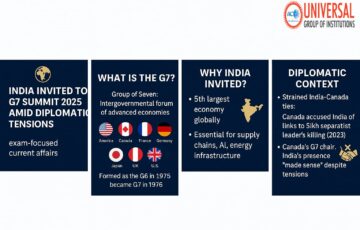BRICS 11th BRICS Parliamentary Forum Held in Brazil
BRICS 11th BRICS Parliamentary Forum Held in Brazil
The 11th BRICS Parliamentary Forum, a significant BRICS meeting and summit, convened from June 3–5, 2025, at the National Congress of Brazil in Brasília. This year’s BRICS summit marked a major step in legislative diplomacy among the expanded BRICS countries, showcasing the growing importance of multilateralism. The event saw participation from various parliamentary representatives, including the speaker Lok Sabha from the parliament of India. The BRICS headquarters, while not physically centralized, symbolically resided in Brazil during this crucial gathering. Building upon the progress made during the BRICS summit in South Africa, the expanded membership now includes India, Brazil, Russia, China, South Africa, Saudi Arabia, UAE, Egypt, Iran, Ethiopia, and Indonesia as BRICS members, with Iran being a notable BRICS new member. This expansion has strengthened relationships between member states, such as the India-Egypt partnership within the BRICS framework.
Key Highlights
Terrorism Condemnation:
The parliamentary forum unanimously condemned the April 2025 Pahalgam terror attack in India, reiterating a zero-tolerance policy against terrorism and calling for collective security efforts among BRICS nations. This stance underscored the commitment to global health cooperation and pandemic response mechanisms, recognizing the interconnected nature of security and health challenges. Discussions also touched upon the potential establishment of a global vaccine fund to enhance preparedness for future health crises.
Artificial Intelligence Regulation and Ethics:
Delegates emphasized the need for ethical frameworks and accountability in Artificial Intelligence. The UAE and Brazil stressed inclusive, responsible AI development through inter-parliamentary cooperation, focusing on AI governance ethics and artificial intelligence regulation. This discussion also touched upon digital initiatives within the BRICS framework, highlighting the group’s forward-thinking approach to technological challenges. India’s representatives introduced Bhashini, the country’s AI-powered language translation platform, as an example of innovative technology serving diverse populations.
Economic Cooperation:
The forum advocated for enhanced intra-BRICS trade, improved access to finance, and stronger roles for national parliaments in shaping inclusive growth policies. Discussions also touched upon sustainable development and food security initiatives within BRICS countries. The New Development Bank, also known as the BRICS Development Bank, was highlighted as a key institution for fostering economic inclusion and trade enhancement among member states. BRICS China, in particular, emphasized the importance of local currency transactions to strengthen economic ties within the group, including the growing India-Egypt partnership, which has been a focus since the BRICS summit in South Africa.
Women’s Participation:
The event included the 2nd Forum of BRICS Women Parliamentarians, aiming to mainstream gender-sensitive policymaking across member legislatures and enhance women’s participation in governance. This initiative aligns with the broader goal of promoting inclusive global growth and ensuring diverse representation in decision-making processes. The India parliament’s efforts in promoting women’s representation were highlighted as a positive example, with the speaker Lok Sabha emphasizing India’s commitment to gender equality in governance.
Parliamentary Diplomacy:
BRICS nations committed to intensifying legislative exchanges, data sharing, and cooperative lawmaking to address global challenges. This commitment underscored the importance of parliamentary exchanges and inter-parliamentary cooperation in fostering stronger ties among BRICS members. The concept of a BRICS Inter-Parliamentary Alliance was discussed as a potential mechanism to further strengthen these legislative bonds.
Outcomes
A Joint Declaration was adopted reaffirming shared commitments to combat terrorism, regulate emerging technologies, and support inclusive development within the BRICS framework. The declaration also emphasized the need for climate and sustainability initiatives, recognizing the urgent global challenges in this area.
India BRICS representatives announced that India will host the 12th BRICS Parliamentary Forum in 2026, further solidifying India’s role in the group. This announcement highlighted the rotating leadership within BRICS and the importance of each member’s contribution to the alliance’s growth. The speaker Lok Sabha expressed India’s commitment to furthering BRICS objectives during its hosting year, including strengthening the India-Egypt partnership within the BRICS context.
The forum reiterated the demand for reforms in global governance institutions, especially pushing for UN Security Council reform to better represent voices from the Global South. This call for Global South representation highlighted the BRICS countries’ commitment to reshaping international institutions. Additionally, the forum discussed the need for reform of Bretton Woods institutions to ensure a more equitable global financial system.
Exam Relevance
- Reflects growing role of legislative diplomacy in global geopolitics
- Showcases India’s leadership in counter-terrorism dialogue and tech ethics
- Important for IR, Current Affairs, International Institutions, and Polity
- Relevant for parliamentary forum UPSC preparation, emphasizing the significance of BRICS in international relations
- Essential for forum IAS aspirants focusing on global governance and multilateral institutions
This BRICS summit in Brazil demonstrated the evolving dynamics of the expanded group, with new members like BRICS Iran and the strengthened India-Egypt partnership within the BRICS context. The focus on artificial intelligence regulation, sustainable development, and women’s participation in governance underscores the forum’s commitment to addressing contemporary global challenges.
The emphasis on parliamentary exchanges and inter-parliamentary cooperation highlights the BRICS countries’ dedication to fostering deeper legislative ties. This approach not only strengthens the institutional framework of BRICS but also promotes a more inclusive and representative global governance structure, particularly in advocating for UN Security Council reform and enhanced Global South representation in international forums.
The 11th BRICS Parliamentary Forum has set the stage for continued collaboration and institutional strengthening of BRICS, paving the way for more impactful global initiatives and reinforcing the group’s position as a significant player in shaping international policy and economic landscapes. The success of this forum builds upon previous achievements, such as the BRICS summit in South Africa, which laid the groundwork for the expanded membership and enhanced cooperation seen today. The ongoing collaboration between India and Egypt within BRICS exemplifies the group’s potential for fostering bilateral relationships that contribute to broader multilateral goals, further solidifying the importance of the India-Egypt partnership in the BRICS framework.






